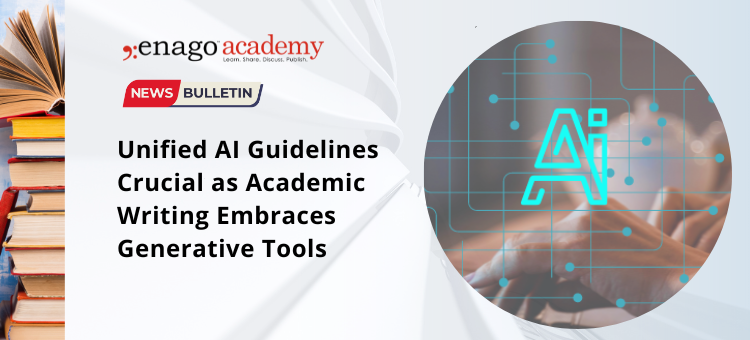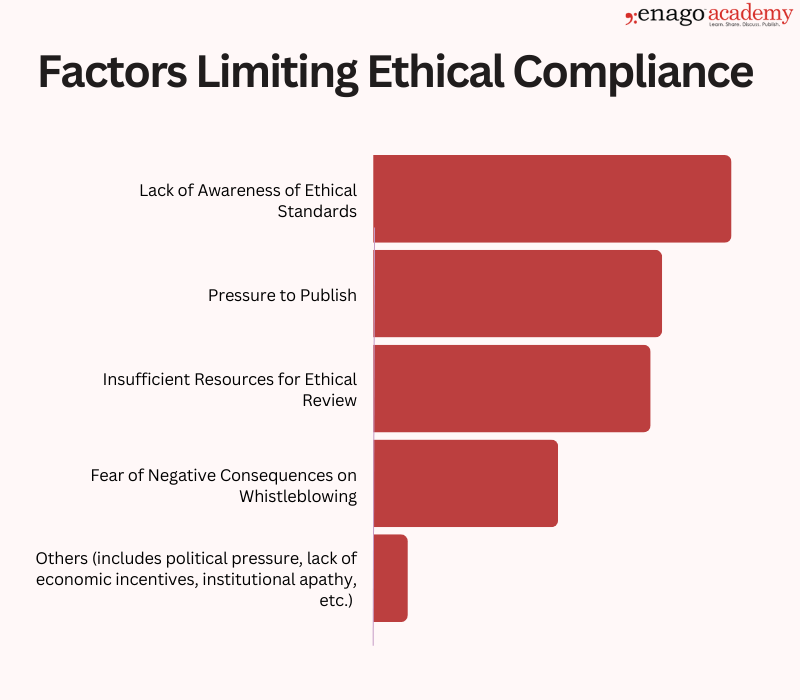Unified AI Guidelines Crucial as Academic Writing Embraces Generative Tools

As generative artificial intelligence (AI) tools like ChatGPT are advancing at an accelerating pace, their integration into different fields is becoming increasingly dominant, including academic publishing. While these tools hold promise for streamlining research writing processes, they also present challenges that demand careful consideration.
The CANGARU Initiative
The integration of powerful generative AI tools like ChatGPT into academic writing has stirred concerns over potential misuse and a pressing need for standardized guidelines. Confronting this issue, a global initiative known as CANGARU has brought together over 4,000 researchers across disciplines, alongside major publishers like Elsevier, Springer Nature, Wiley, and industry bodies like the Committee on Publication Ethics. It aims to establish a unified set of consensus-driven standards by August, outlining appropriate AI uses, mandates for disclosure, and prohibited practices to uphold research integrity. In a survey conducted by Enago Academy, it was found that 65.95% of respondents voted in favor of a universal guide for research ethics, indicating a general preference for a comprehensive approach to ethical standards in the era of AI.
The urgency for clear standards can be understood by recent estimates suggesting AI-generated text may already be present in 1% to 5% of manuscripts published in 2023. As CANGARU lead Giovanni Cacciamani cautions, this “fast-evolving” technology demands annual updates to the proposed guidelines.
The Need for Standardized Guidelines
Many high-impact journals like Science and Nature, along with other organizations, have established policies regarding the use of AI tools in academic writing. These policies state that AI tools cannot be authors because they cannot be held accountable. Authors must declare where these tools were used, but guidance varies among different bodies.
The stark difference in guidelines from scientific organizations is evident in the approach taken by the STM Association and the European Commission. The STM Association’s December 2023 policy outlines permitted uses for generative AI, while leaving other decisions to journal editors on a case-by-case basis. In contrast, the European Commission’s recent announcement is less detailed, emphasizing transparent use of the tools and maintaining researchers’ responsibility for their scientific output.
The disparity in guidelines leads to confusion among researchers. Consolidating these rules into a standardized guideline will provide clarity and consistency and help ensure transparency, accountability, and responsible scientific output across the board.
Establishing clear guidelines is a crucial step, but its success depends on widespread adoption by publishers and robust enforcement mechanisms involving institutions, funding agencies, and academic committees.
This was echoed in the survey conducted by Enago Academy to assess the role and impact of AI in the future of academic publishing and research ethics. It was found that there exist diverse perspectives on trust in AI-generated content from factors such as lack of transparency, bias concerns, ethical considerations, reliability issues, cultural differences, and varying levels of education and awareness.
 Further, the most voted factor for limiting ethical compliance was lack of awareness of ethical standards (30.83% of respondents), indicating a persistent need to address the lack of awareness of ethical guidelines through comprehensive training programs to ensure that researchers are equipped with a clear understanding of ethical standards.
Further, the most voted factor for limiting ethical compliance was lack of awareness of ethical standards (30.83% of respondents), indicating a persistent need to address the lack of awareness of ethical guidelines through comprehensive training programs to ensure that researchers are equipped with a clear understanding of ethical standards.
It is essential to acknowledge and embrace a collaborative approach where AI supplements human intelligence. Furthermore, prioritizing education and training programs to equip individuals with the skills needed for effective human-AI collaboration is crucial.
Maintaining scientific integrity demands proactive measures that keep pace with rapidly evolving generative AI capabilities.









